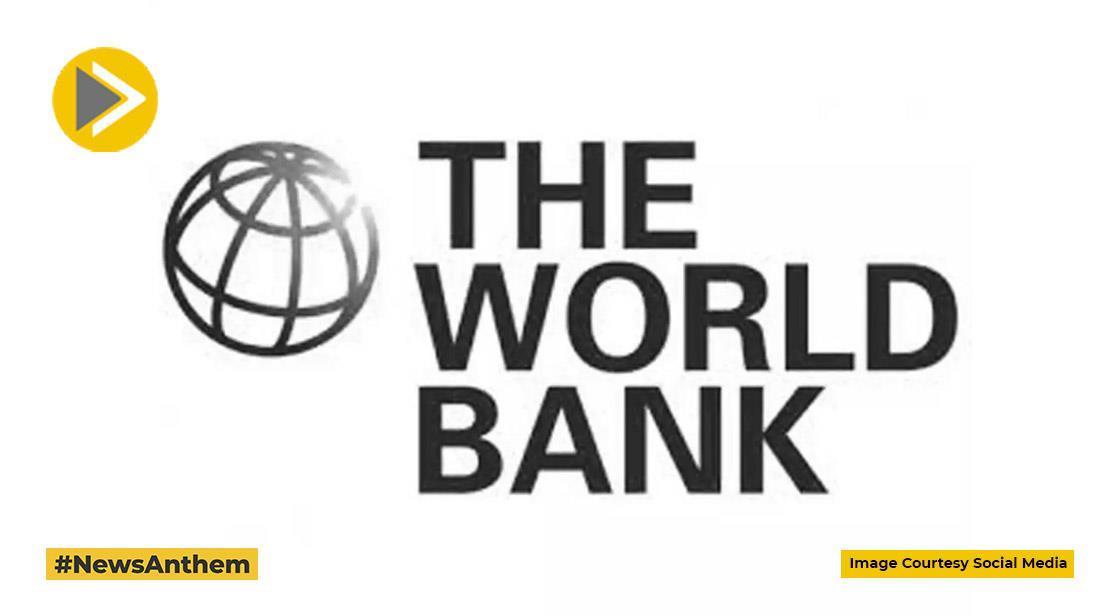World Bank President Ajay Banga Urges Developing Nations to Cut Tariffs, Boost Regional Trade Ties

News Synopsis
World Bank President Ajay Banga has made a strong appeal to developing nations, encouraging them to reduce tariffs and intensify their participation in regional trade networks.
Speaking to reporters on Wednesday, Banga emphasized that many developing countries still impose higher tariffs compared to advanced economies, which could lead to retaliatory measures and diminish their global competitiveness.
“Many developing economies still maintain higher tariffs than advanced economies, on the average, several percentage points higher on key imports,” World Bank President Ajay Banga said. “I think that creates a real risk of reciprocal tariffs and, most importantly, lost competitiveness.”
Global Trade at a Crossroads
Mounting Uncertainty Amid Trade Wars
Banga’s comments come at a time of heightened global uncertainty, spurred by a series of trade disputes and tariff hikes. In recent months, the international trade environment has been disrupted by sweeping U.S. tariffs and expected retaliatory actions from countries such as China and others. Banga noted that these developments have contributed to a more cautious outlook for both business investment and economic growth.
“Countries need to care about negotiating and dialogue. It’s going to be really important in this phase, and the quicker we do it, the better that will be,” he said.
Global Growth Forecast: Stagnation Ahead
2.7% Global Growth Predicted Through 2026
The World Bank had previously predicted in January 2025 that global economic growth would remain stagnant at 2.7% for 2024, 2025, and 2026. It also warned of the weakest long-term growth outlook for developing nations in 25 years. Banga didn’t provide a new forecast but indicated that economic momentum is softening due to policy instability and rising protectionism.
“If you get to good resolutions through that negotiation that I’m encouraging … then I think you could get through this relatively quickly,” Banga added.
Donald Trump’s Tariff Policies: A New Global Trade Reality
U.S. Tariffs May Trigger Global Slowdown
The backdrop of this concern includes former U.S. President Donald Trump’s proposal to impose a baseline 10% tariff on imports from all nations, with steeper levies for select countries.
These tariffs, currently paused for 90 days to facilitate negotiations, have the potential to lower global growth by 0.3 percentage points in 2025 if met with retaliation, according to the World Bank.
Strengthening Regional Trade: A Key Strategy
Untapped Potential in Regional Integration
Banga underscored the vast opportunity in deepening regional and bilateral trade, especially for developing economies. He cited that global trade has nearly quadrupled over the past two decades, with developing nations increasing their share to two-fifths of that total.
He stressed the importance of broad-based trade liberalization, efficient border processes, standardized rules of origin, and reduced friction. These measures could enhance competitiveness, reduce risk, and expand market access.
“History shows that more open economies tend to grow faster and they withstand stocks and shocks more effectively,” Banga noted.
Investment, Jobs, and the Role of Private Sector
Bridging the Employment Gap in Developing Nations
In response to questions about the sharp reductions in foreign aid by the Trump administration and some European nations, Banga emphasized that such assistance is not a permanent solution. Instead, he urged developing countries to foster environments that welcome private sector investment.
He warned of a looming employment crisis, pointing out that 1.2 billion young people are expected to enter the workforce in developing nations over the next decade, yet only 420 million jobs are likely to be available.
“That gap is not just an economic issue. I think it’s a global risk, because without opportunity, the forces of fragility, of illegal migration, of instability, these forces grow stronger,” Banga stated.
Conclusion
Ajay Banga’s latest statements shine a spotlight on the critical trade and development issues facing the global South. As protectionist policies threaten global trade stability, developing countries have a unique opportunity to drive economic resilience by reducing tariffs, pursuing regional trade integration, and modernizing their trade frameworks.
The World Bank President’s call to action highlights how liberalization, open dialogue, and negotiation can foster faster growth and insulate economies from global shocks. Banga also stressed the urgency of job creation in developing regions, warning of the long-term global risks posed by high youth unemployment.
While foreign aid may play a transitional role, Banga insists that creating favorable regulatory environments to attract private investment is key. As the world stands on the edge of economic uncertainty, the path forward will depend heavily on how swiftly and strategically countries engage in trade reforms and collaborative solutions.
You May Like









